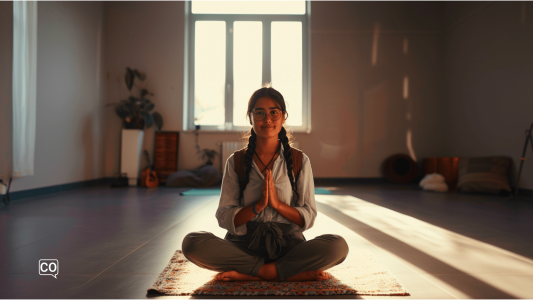Rutinas diarias

Learning goals:
- Situation: Hablar sobre la rutina diaria (Talk about daily routine)
- Situation: Actividades diarias (Daily activities)
- Verb: Levantarse (to get up) - Presente, indicativo (Present, indicative)
- Verb: Lavarse (to wash oneself) - Presente, indicativo (Present, indicative)
- Grammar: Verbos y pronombres reflexivos (Reflexive Verbs and Pronouns)
- Culture: Rutina diaria tradicional española (Traditional Spanish Daily Routine)
Learning module 3 (A1): Día a día (Day to day)
Teaching guidelines +/- 60 minutes
Exercises
These exercises can be done together during conversation lessons or as homework.
Exercise 1: Find the words
Instruction: Find the words, mark them and make sentences with the words.
Show answers Show hintsHints
To have breakfast , To comb oneself , To wash oneself , To get up , To sleep , To dine
Answers
Score: 0/6
| Levantarse | (To get up) |
| Peinarse | (To comb oneself) |
| Desayunar | (To have breakfast) |
| Dormir | (To sleep) |
| Lavarse | (To wash oneself) |
| Cenar | (To dine) |
Exercise 2: Reorder sentences
Instruction: The words in these sentences have been shuffled! Sort them so that they make a valid sentence again and translate.
Show answers Show translationExercise 3: Translate and use in a sentence
Instruction: Translate and say the word out loud. Use the word in a sentence.
Show translation|
1.
Lavarse
|
(To wash oneself) |
|
2.
Peinarse
|
(To comb oneself) |
|
3.
Levantarse
|
(To get up) |
|
4.
Despertarse
|
(To wake up) |
|
5.
Acostarse
|
(To lie down) |
|
6.
Dormir
|
(To sleep) |
|
7.
Vestirse
|
(To get dressed) |
|
8.
Cenar
|
(To dine) |
Exercise 4: Translate and make sentences
Instruction: Translate the words and phrases below and use it in a conversation or text.
Show answersExercise 5: Conjugación verbal
Instruction: Choose the correct word, read the sentence out loud and translate.
Show answers Show translationLevantarse (Presente, indicativo), Lavarse (Presente, indicativo)
1. Él ... antes de que salga el sol.
2. Ellos ... para ir al gimnasio.
3. Nosotros ... los pies después de caminar.
4. Ellos ... el cuerpo los fines de semana.
5. Yo ... los dientes todas las mañanas.
6. Vosotros ... muy tarde los domingos.
7. Yo ... temprano todos los días.
8. Tú ... las manos antes de comer.
Exercise 6: Reflexive Verbs and Pronouns
Instruction: Choose the correct word, read the sentence out loud and translate.
Show answers Show translationme peino, se levantan, te vistes, os laváis, te levantas, me lavo, nos levantamos, nos duchamos, se lava, se acuestan
1. Yo ... las manos.
2. Vosotros ... la cara.
3. Ellos ... a las diez de la noche.
4. Nosotros ... pronto.
5. Yo ... el pelo todas las mañanas.
6. Tú ... a las seis.
7. Nosotros ... después de hacer ejercicio.
8. Tú ... con ropa cómoda.
9. Ellos ... muy pronto por la mañana.
10. Él ... los dientes.
Exercise 7: Translate and make sentences
Instruction: Translate the words and phrases below and use it in a conversation or text.
Show answers